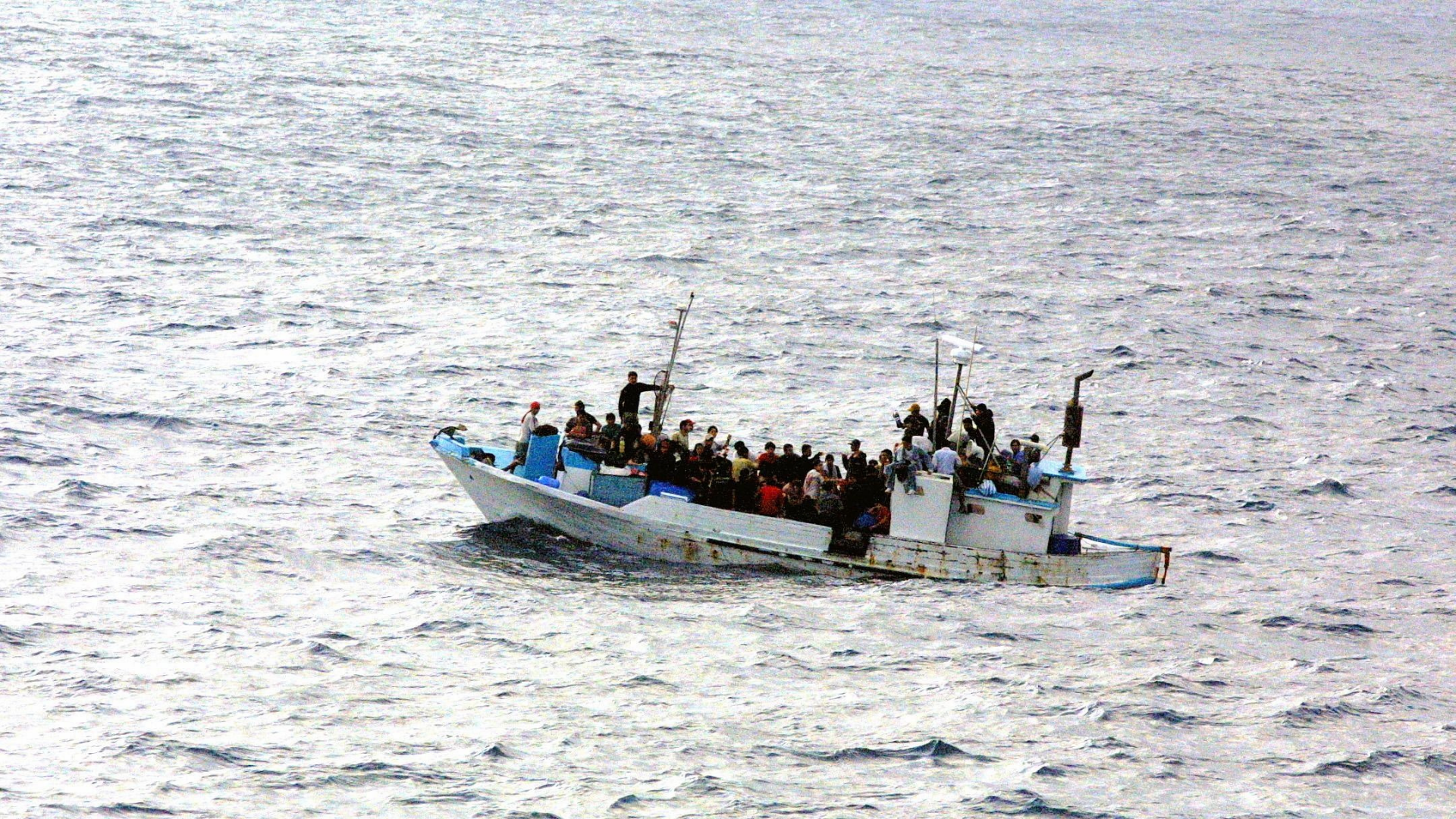By Devershi Mishra and Komal Khare*
The Global North’s approach to addressing the European refugee crisis raises troubling questions about their self-professed democratic standards. Europe, North America, and Australia’s responses to the refugee crisis are discriminatory: cemented on disguised racism, their response reflects their ostensible “comfort” with the idea of an inclusive, multi-religious, and multi-racial-democracy.
Since the end of WWII, First World nations have proclaimed to be the sole upholder of human rights. They condemned the Global South on human rights issues to utilize it as an instrument to boost their own economic and foreign policy. For instance, the U.S.’ invocation of Responsibility to Protect (RtoP) in Iraq, and the blatant absence of such responsibility in Syria posits a duplicitous stance vis-à-vis RtoP. It is evident that the U.S. invoked RtoP for “prevention of human rights violations” in Iraq to further its self-interest of procuring oil, which is absent in Syria. We will explore Europe’s violation of non-refoulement, and its accountability under international law by positing this principle as obligation erga omnes. We will also establish a greater responsibility placed on the U.S. under RtoP.
Western media houses have supported government descriptions by labeling the present influx as a “migrant crisis” as opposed to “refugee crisis.” The deliberate use of the term “migrant” implies a consensual displacement and represents a European attempt to avoid international legal liability for the refugees. Under the UN Refugees Convention, refugees are people who have left their country and cannot return due to “fear of persecution.” Therefore, people being displaced from the Middle East and Africa must be understood as refugees, and viewed as the U.S. and Europe’s humanitarian responsibility – especially because their geopolitical involvement has contributed to regional instability. In this case, sovereignty is a feeble excuse to shirk the responsibility of protection of refugees because sovereignty also entails a respect towards human rights.
Principle of Non-Refoulement
The EU-Turkey deal envisages the return of refugees and migrants from Greece to Turkey. Such a deal would violate the principles of international law. Article 33 of the UN Refugees Convention mandates the fulfillment of the principle of non-refoulement on the signatories of the Convention. The principle prohibits the return of a victim of persecution to his persecutor where his life is in danger.
However, from various instances like Hungary building a fence at the Hungary-Serbian border, it is evident that certain European responses endanger refugees’ lives by denying them entry at the borders. This is an explicit violation of the non-refoulement principle. This failure is further amplified when considering that poor and middle-income nations are discharging the burden of hosting the substantial international refugee population. Conceding to the fact that there have also been certain instances of mismanagement of the refugee population in developing countries, however, it is asserted that such missteps must not be taken as an ideal response to neglect the responsibility owed to the present refugee crisis and thus pass the buck to poorer nations.
The ongoing refugee crisis in Europe creates a responsibility for its mitigation, not only on Europe, but on the world community as a whole.
Non-Refoulement as an Obligation Erga Omnes
All the nations are legally bound to resolve the refugee crisis under the global obligation to protect people from racial discrimination, slavery, and genocide under erga omnes. The rights constituting obligation erga omnes are so important that it is in the interest of the international community to protect them, even if it requires intervention.
In the context of the refugee crisis, obligation erga omnes can be extended to the obligation to eschew refoulement, as obligation erga omnes is similarly placed as non-refoulement with respect to basic individual rights vis-à-vis the whole international community. Therefore, whenever refoulement transpires, every state has the right to invoke the responsibility of the violating state, and hold it liable.
Thus, the European refugee crisis can also ensure collective global intervention by invoking non-refoulement as obligation erga omnes in two ways: firstly, Syrian and African refugees in Europe are facing racial discrimination due to refoulement, and because refoulement enjoys the reputation of an international crime, there is an affirmative obligation on each nation to intervene. Secondly, non-refoulement can be viewed as a basic right warranting correlative duties to avoid refoulement, and because the availability of basic rights is necessary for the enjoyment of every other right, they must be protected.
First World’s Responsibility to Protect (RtoP)
During the U.S.-Iraq war, the U.S. utilized the human rights narrative to justify the invocation of RtoP. The U.S. now has the responsibility towards refugees fleeing Middle East and Africa.
Paragraph 138 and 139 of the 2005 World Summit outcome document introduced RtoP. Secretary General Ban Ki-Moon, in his 2009 report, illustrated a three-pillar approach to RtoP. Pillar one explains the responsibility of an individual state to protect its territorial population, including citizens and non-citizens, from genocide, war crimes, and ethnic cleansing. Pillar two prescribes the measures for global assistance and capacity building. Finally, pillar three advocates the responsibility of the international community to collectively respond, in extreme circumstances, where a state has manifestly failed to discharge its RtoP under pillar one.
Thus, pillars two and three of RtoP require internationally shared responsibility of refugees when hosting nations are not able to provide sufficient level of protection to them. The U.S. and other First World nations are bound to aid Lebanon and Jordan under pillar two of RtoP, as these countries have acknowledged their inability to protect Middle Eastern refugees.
Under pillar three of the RtoP, the responsibility arises when refugees are vulnerable to RtoP crimes. Thus, the U.S. and other First World nations have a responsibility towards refugees in Europe irrespective of their geographic placement. Moreover, after getting refuge in the host country, pillar one’s provisions protect a refugee, regardless of citizenship and immigration status. Thus, the global community cannot unilaterally suspend their corresponding responsibility towards Syrian refugees, whether they are located in Lebanon, Turkey, or elsewhere.
Works Cited
- Telegraph View, Migration crisis exposes the EU’s disregard for democracy, September 24, 2015, http://www.telegraph.co.uk/news/newstopics/eureferendum/11885644/Migration-crisis-exposes-the-EUs-disregard-for-democracy.html
- This racist backlash against refugees is the real crisis in Europe, The Guardian, February 25, 2016, https://www.theguardian.com/commentisfree/2016/feb/25/racist-backlash-against-refugees-greece-real-crisis-europe.
- United Nations High Commissioner for Refugees, Convention and Protocol Relating to the Status of Refugees UNHCR, http://www.unhcr.org/protection/basic/3b66c2aa10/convention-protocol-relating-status-refugees.html.
- Lucas Bento, Sovereignty Cannot Hold Back the Power of Humanity – Harvard International Law Journal Harvard International Law Journal (2015), http://www.harvardilj.org/2015/09/sovereignty-cannot-hold-back-the-power-of-humanity/
- Patrick Kingsley Migration correspondent & Jennifer Rankin, EU-Turkey refugee deal – Q&A, The Guardian, March 8, 2016, https://www.theguardian.com/world/2016/mar/08/eu-turkey-refugee-deal-qa
- Patrick Kingsley on the Serbo-Hungarian border, Migrants on Hungary’s border fence: “This wall, we will not accept it,” The Guardian, June 22, 2015, https://www.theguardian.com/world/2015/jun/22/migrants-hungary-border-fence-wall-serbia
- Tackling the Global Refugee Crisis: From Shirking to Sharing Responsibility, Research by Amnesty International, 18 October, 2016, https://www.amnesty.org/en/documents/pol40/4905/2016/en/.
- Poor countries need to allow more immigration, too, The Economist, 2016, http://www.economist.com/news/leaders/21712141-governments-poor-countries-are-right-complain-about-wests-restrictive-immigration
- Henry Shue, Basic Rights: Subsistence, Affluence, and U.S. Foreign Policy (1996).
- Secretary General Ban Ki-moon Report: Implementing the Responsibility to Protect, http://www.responsibilitytoprotect.org/index.php/edward-luck/2105-secretary-general-ban-kimoon-report-implementing-the-responsibility-to-protect
- E. Tendayi Achiume, Syria, Cost-Sharing, and the Responsibility to Protect Refugees, 100 Minn. Law Rev. 687–762 (2015
*Devershi Mishra and Komal Khare are undergraduate students at NALSAR University of Law, Hyderabad.



